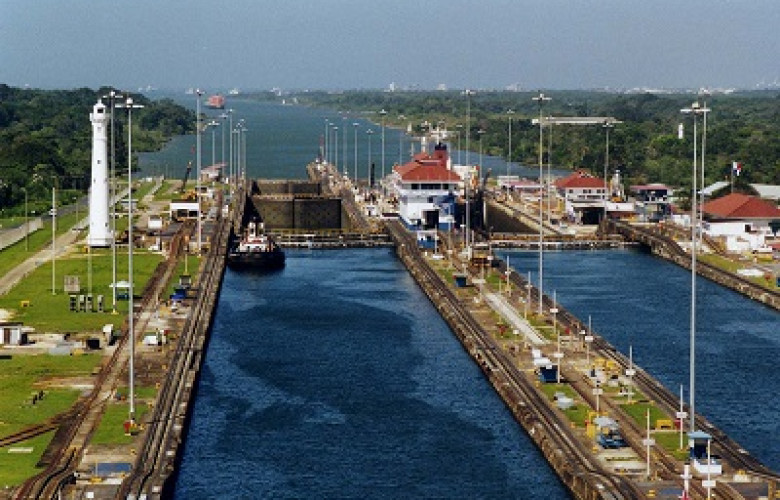Trump goes deep into the Panama Canal
Selwyn Parker
2025-01-14
AMERICA
TRADE AND ECONOMICS
This article first appeared on The Interpreter, published by the Lowy Institute

Chinese soldiers do not operate the Panama Canal. And the Panama government is not ripping off the consumers of the United States through inflated shipping rates.
That’s the only possible conclusion from an impartial look at how this historic waterway works. Yet on the basis of these claims by US president-elect Donald Trump, he is threatening to annex the 80-kilometre canal that joins the Atlantic and Pacific Oceans, connects more than 140 shipping routes and 1,700 ports worldwide, and provides the transit for about three percent of global trade.
For good measure Trump has not ruled out military force to seize the waterway that was handed over to Panamanian control in 1999 in the wake of a treaty signed by the late president Jimmy Carter, a measure that Trump now labels “a big mistake”.
At one stroke the incoming occupant of the White House raised the level of international tensions as measured by the World Economic Council’s Global Cooperation Barometer, a useful yardstick for assessing how nations work together in a variety of areas. The barometer’s latest reading shows that “international cooperation has flatlined, driven by heightened geopolitical tensions and instability”, albeit noting positive momentum in other areas such as climate finance, health and innovation.
It didn’t help the barometer that at around the same time Trump expressed interest in buying or annexing Greenland, a self-governing territory of Denmark, which has no intention of parting with it.
Although the Panamanian government has calmly brushed aside Trump’s threats, experienced observers see his claims as extremely harmful to American interests. As a former US ambassador to Poland, Daniel Fried, wrote in Atlantic Council this month: “[They] reveal a dark side of power unworthy of any US president. Put into practice, they would reduce the United States to a mere bully that rules through force and fear, assuredly triggering a reaction against it, as well as ending US alliances. That’s quite a degeneration from the tradition that Trump inherits.”
While Fried surmises that these threats “may be bluster or tactical”, he argues that they take America back to the darker days of the 19th century when power came through territorial conquest.
Trump is probably not aware of the pride Panama takes at its largely successful operation of the waterway. The canal authority recovered from a severe drought through much of 2024 that slashed the rate of ships transits and, as its latest financial statements show, has drawn up plans to avoid a repetition while also investing heavily in future sources of revenue such as a parallel fuel pipeline running the length of the canal.
Incidentally, this would be very much in US interests because Panama’s president Jose Raul Mulino wants to increase volumes of American oil via the waterway as one of several initiatives to find alternative income streams.
But are its revenues “ridiculous and highly unfair”, as Trump argues? Last financial year’s total revenues of nearly US$5 billion reflect a compound annual growth of nine percent, up $1.8 billion over five years. Net earnings, or roughly profits, total $3.85 billion, up 18 per cent. That represents a healthy operating margin of over 62 per cent.
That may suggest there’s room for negotiation over rates, except that the canal authority’s next two biggest customers after America – China and Japan – aren’t complaining. Also, the authority aims to become net-zero by 2050 and has set aside $8.5 billion to get there.
Anyway, the Panama government has dug in its heels. An exasperated Mulino, who said “for the love of God, there are no Chinese soldiers in the canal”, told a celebration on 31 December marking 25 years since the handover that “it will stay in our control for ever”. And he added that there was no possibility tolls would be reduced for US ships.
Still, Trump has appointed a minor 34 year-old Miami official – and local campaign organiser – as his ambassador in the republic. Son of Cuban exiles, Kevin Marino Cabrera is under instructions to get the toll rates down.
Photo: Stan Shebs, CC BY-SA 3.0 <https://creativecommons.org/licenses/by-sa/3.0>, via Wikimedia Commons
Membership
NZIIA membership is open to anyone interested in understanding the importance of global affairs to the political and economic well-being of New Zealand.